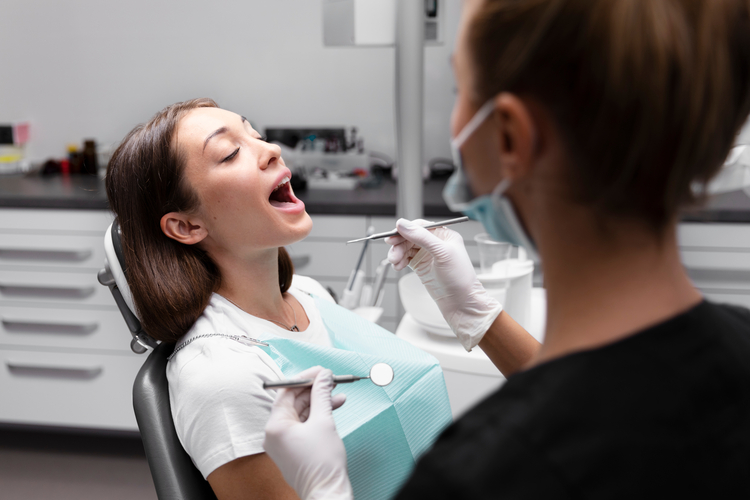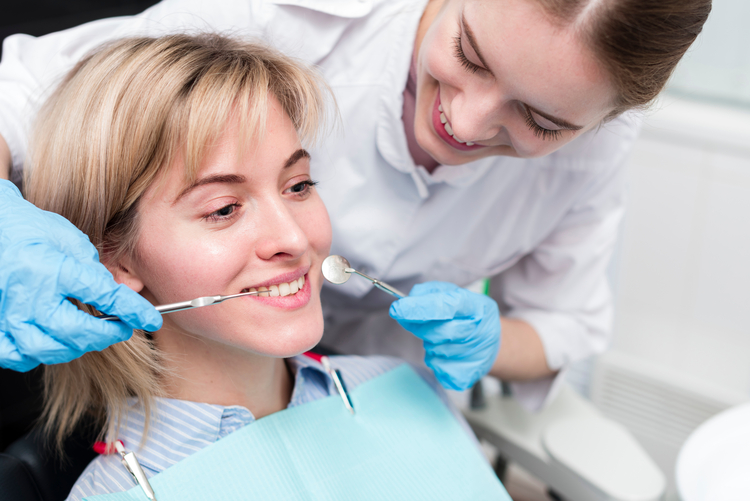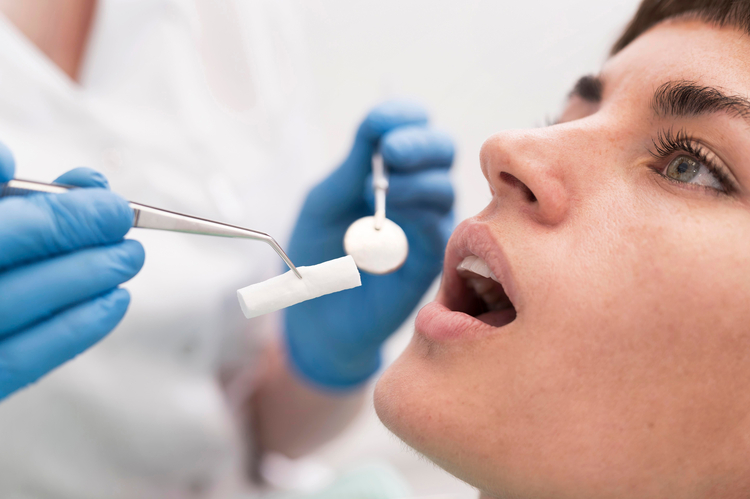Home > Services > Oral Appliances > Teeth Grinding
Under normal circumstances, your teeth should only contact for about 5 minutes each day. Normal chewing results in brief intervals of contact between enamel surfaces, the hardest substance in the human body. Slight amounts of wear over years of function frequently occur, and bite edges can chip a little. But these durable surfaces should wear at nearly undetectable rates.
Sometimes, teeth develop a flattened, worn appearance, even in young patients. When your TMJ dentist does X-rays, you may see unusually thin layers of enamel as if sandpaper has been drawn across the chewing surfaces of the teeth. A few minutes of chewing daily simply shouldn’t erode the enamel so much.


Some patients develop a subconscious habit of grinding their teeth, either during the day or night. In many cases, the abrasive action occurs only during sleep, and for only a few seconds at a time. If you wake up with a sore jaw or a morning headache, chances run high you’re grinding your teeth during the night. In some patients, enlarged jaw muscles develop on the sides of the face from the extra activity. These muscles can be the strongest in the body, ounce for ounce. That means they can generate a lot of unnecessary damage.
The unusual activity not only wears down teeth but strains the overworked muscles. The compressive forces can also damage the intricate jaw joints on one or both sides. Damage to the joints may lead to arthritic changes, chronic pain, and popping or clicking. Once these changes settle in, reversing their condition may become impossible. That’s when you need to find a dentist who is a TMJ specialist near you – like the experts at Shoreline Dental Studio.
If you’re waking up with a sore jaw or headaches, or you’ve noticed chips or flattening of your teeth, a consult with our Shoreline dentists should be on your list. The sooner the problem receives attention, the less damage there will be. Often a carefully calibrated night guard with a distinct bite relationship built in will eliminate the symptoms while protecting your precious enamel.
Daytime habits of clenching or grinding deserve attention, and strategies to reduce the problem may be developed. Our dentists will also analyze the current relationship between your teeth to make sure they’re moving against each other optimally when you chew. Regardless of the cause, eliminating the strain on the jaw and your teeth as quickly as possible can save you many problems as time goes on.
Our Shoreline doctors are licensed to administer Botox as a therapeutic treatment for temporomandibular joint (TMJ) disorders and related conditions. TMJ dysfunction can lead to a range of debilitating symptoms, including chronic headaches, jaw pain, muscle tension, and even sleep apnea due to airway restriction. By strategically injecting Botox into specific facial and jaw muscles, dentists can help alleviate excessive muscle contractions, reducing strain on the TMJ and improving overall function. This minimally invasive treatment provides relief for patients who struggle with persistent discomfort and can be an effective complement to other TMJ therapies, such as occlusal splints, physical therapy, and lifestyle modifications.

Your experience matters. Explore our patients’ testimonials and see why we’re their first choice in dental care.

“Best dental experience ever! Everyone is so sweet, caring and incredibly knowledgeable and confident. I was super nervous about going to dentist after not having gone for awhile but as soon as stepped into the studio I felt like I was in good, loving hands and had nothing to worry about! Everyone is so great about creating a calm and friendly experience:) Dr. Livingston is the best!”
Becca B

“It’s a friendly, welcoming and stress free environment. From the candle in the reception area to the windows in the treatment rooms looking out on a garden, it feels very non-dentist like, which is actually a good thing. They addressed the issue I had come in for and didn’t try to upsell me on other unnecessary treatments. I actually found a dentist’s office that I like!”
Rhonda H
Problematic unconscious teeth grinding is known as bruxism.
Bruxism describes a condition where you grind or clench your teeth together without realizing you’re doing it, whether you’re awake or asleep. It has a variety of causes, from stress to substance abuse, and can cause damage to your teeth, severe jaw pain, headaches, and TMJ dysfunction.
The treatment for bruxism is multifaceted. A custom-fitted mouth guard can protect your teeth, especially if you grind your teeth while asleep. Stress-reduction techniques like meditation and lifestyle adjustments are also an important part of the treatment. Medications may be useful for severe cases. Your dentist can help you create a personalized treatment plan.
The best way to prevent bruxism is to manage your stress effectively and avoid recreational drugs, heavy alcohol consumption, and smoking. Your annual dental checkups will also help you and your dentist stay on top of the condition—you may not even know you’re grinding your teeth, but your dentist will see the evidence on your teeth and advise you accordingly.
Bruxism is very dangerous for your teeth. It can cause cracks and fractures, as well as wearing down your enamel to expose you to periodontitis or sensitivity. The sooner you can take steps to protect them and work to stop grinding your teeth, the better!
Mission Viejo Office
San Clemente Office